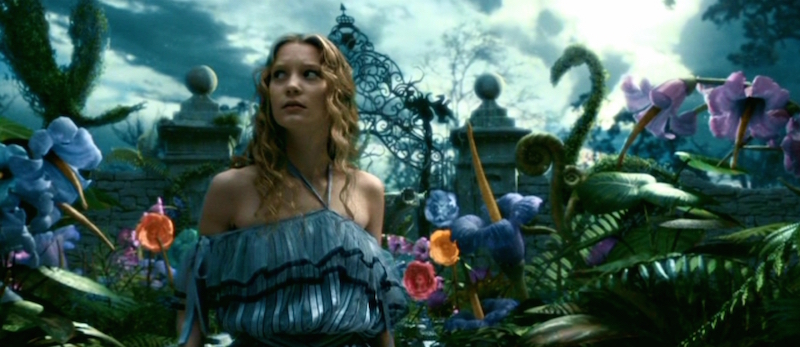Synopsis: Strange events happen in a small village in northern Germany and the abused and suppressed children appear to be the cause.
Release Date: December 30, 2009 MPAA Rating: PG-13
Genre(s): Drama, Foreign
Film Review

Production
First, the audience is engulfed in the overpowering darkness of the screen. Then, slowly and languidly, the opening shot of a man riding his horse fades from black and makes its way onto the screen. Now, you are fully immersed into the world of 1913 Germany, only a year before World War I begins. Odd events are occurring in this small, highly religious village in Northern Germany. It begins with a doctor falling off his horse after coming upon a wire that was intentionally tied between two trees to injure him. This opening builds a kind of tension that lasts throughout the length of the film, as if one should constantly be worried of some unforeseeable threat. From there, other instances of torture unfold, each act more heinous and chilling than the last. However, the mystery remains: who committed these dark acts and why? Do these acts point to the mental instability of a solitary individual or to larger social issues, inbred by cultural emphasis? The title, “The White Ribbon”, refers to the white ribbon of purity tied to a child’s body after they have committed a sin. White is the representative color of innocence, however, in this film it signifies a sinner. This film basically undermines the societal preconception of innocence and begs the question, can innocence be trusted? Does it exist?
“The White Ribbon” is a beautiful and impeccably made film that is both stunning and emotionally gripping. Haneke’s employment of certain Neo-realism characteristics allowed the story to have an incredibly affective quality. However I must forewarn you, it is not for the faint of heart. Aside from it being a long movie, it has some very disturbing themes such as incest, abuse, death and torture that are presented in a very realistic, uncompromising manner. Ultimately, this may not be the most entertaining night at the movies, but, I assure you, you will not be able to leave the theatre unaffected.

Cinematography
Shot masterfully in black and white, “The White Ribbon” is a visually stunning masterpiece. There is a sort of precision at work here that is seen in the framing, lighting, and camera placement. The Director, Michael Haneke, employed extremely long takes that required complex camera movements, all of which were perfectly executed by the cinematographer Christian Berger. The use of these long takes allowed the story to unfold in real time so that the viewer is able not just to observe these occurrences, but to experience them. Some of the long takes last for at least five minutes, exemplifying the perfect choreography of the camera and character movement. At times it is almost difficult to reconstruct the narrative because the film becomes more focused on how things happened rather than what happened when. Because of the films extremely long takes with a static camera, the framing and camera placement becomes central to the effectiveness of the visual storytelling. Also, in a film that focalizes the darkness found among even the most innocent, lighting plays a key role in displaying the delicate dualities within the characters.

Sound
In the tradition of Neo-realism, no non-diegetic sound was used in this film to further establish realism. This film uses silence to say volumes, keeping the viewer focused and absorbed into the film world. The lack of non-diegetic sound also further emphasizes the instances where sound is expressly important, such as when the church’s children’s choir sings a beautiful but haunting hymn, which signals how much their innocence is valued and exalted in German society.
Cast and Crew
- Director(s): Michael HanekeMargaret MenegozAndrea Occhipinti
- Producer(s): Michael HanekeChristian Friedel (The School Teacher)
- Screenwriter(s): Leonie Benesch (Eva)Ulrich Tukur (The Baron)Ursina Lardi (The Baronin)
- Story: Fion Mutert (Sigi)
- Cast: Monika WilliChristian BergerChristoph Kanter
- Editor(s): Moidele Bickel
- Cinematographer:
- Production Designer(s):
- Costume Designer:
- Casting Director(s):
- Music Score:
- Music Performed By:
- Country Of Origin: AustriaGermany

